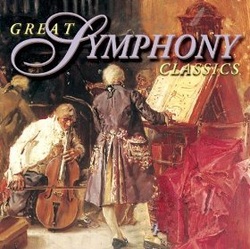 Is there room for Canada here?
Is there room for Canada here? The folks at NPR hasten to add that they aren’t out to “crown” any particular work. Rather, they want to instigate a broader conversation about the heritage, evolution and current state of the American symphony. (For more information, see here.)
Ordinarily, I tend to be skeptical about exercises that attempt to focus on what is “great,” “important” or “essential.” And in this particular case, the issue seems a little forced, because 98 percent of the U.S. population couldn’t care less about whether there are any great American symphonies or not.
As a Canadian, it all makes me a little jealous. And I find myself asking myself questions that seem to lack satisfactory answers. Who in Canada would think to instigate a discussion about the “great Canadian symphony?” Who would, or even could, participate in such a discussion? Without a broad, common knowledge of what’s out there, how could the subject be discussed? If the topic is a tenuous one in the United States, it seems to be nigh-on impossible in Canada.
The problem is not that there aren’t any Canadian symphonies to talk about. A search on the word “symphony” in the Canadian Music Centre’s database comes up with works by Malcolm Forsyth, Jacques Hétu, Murray Adaskin, Jean Coulthard, Talivaldis Kenins, Alan Belkin, Srul Irving Glick, John Estacio, Maya Badayan, T. Patrick Carrabré and many others. Heck, there’s even one by R. Murray Schafer.
But the sad truth of the matter is that Canadian symphonies and other orchestral works have failed to attain even the modest canonic stature that some American works have achieved. I’m often struck by this when I look at the season programs of American orchestras. There is an acknowledged American orchestral repertoire. It may stand in the shadow of the European juggernaut, but it does exist and American orchestras play it.
However, in Canada it seems that we’re not there yet.
Personally, if I were to select a favourite Canadian symphony (from my less-than-thorough knowledge of the literature), I’d choose Hétu’s Symphony No. 5. I heard its premiere by the Toronto Symphony Orchestra and the Amadeus Choir in 2010. It’s a masterful example of Hétu’s personal style: a synthesis of classical traditions and modernist idioms. (It is saddening to think the composer did not live to hear the piece.)
Does anyone else have any suggestions?
© Colin Eatock 2013
 RSS Feed
RSS Feed

